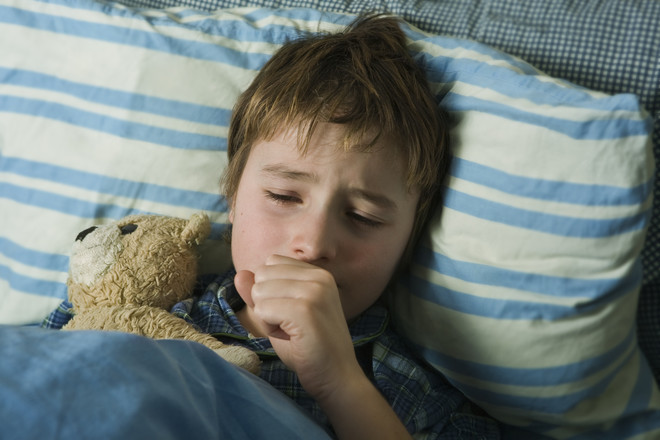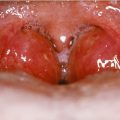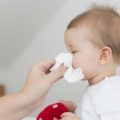Causes of chronic cough in children
The cough reflex is not a disease, but a natural onecleaning and protection mechanism. In this way, the respiratory organs are freed from foreign particles, mucus, and microbes. In case of illness, there is more pollution, so a person coughs more often and more intensely. A child's persistent cough is a symptomserious illnessPhoto: Getty A long cough in a child without fever is a sign of a progressive disease or constant irritation of the respiratory tract. The main factors causing this condition are:
A child's persistent cough is a symptomserious illnessPhoto: Getty A long cough in a child without fever is a sign of a progressive disease or constant irritation of the respiratory tract. The main factors causing this condition are:
- Sinusitis and adenoiditis. Hidden inflammation of the adenoids or nasal sinuses causes thick discharge from the nose, difficulty breathing, drying of the nasopharynx.
- Asthma. Suffering from shortness of breath, the child is dry, coughing coughing at night.
- Laryngitis or tracheitis. Lesions of the larynx and trachea make themselves felt by a sharp, barking cough.
- Whooping cough. Coughing attacks are so strong that they often go into vomiting.
- Allergy. The body reacts with a cough to sources of irritation - tobacco smoke, dust mites, animal hair, etc.
- Nervous cough. It is caused by psychological factors - fear of the school, ridicule, natural shyness or habit left after a severe cold.
To determine the cause, you need to see a doctor. He will conduct an examination, order an X-ray, allergy tests or lung function tests.
How to cure a prolonged cough in a child
The doctor prescribes medications depending ondiseases. Antibiotics are necessary for sinusitis, adenoiditis, whooping cough, and laryngitis. Antihistamines are recommended to relieve swelling that interferes with breathing. Whooping cough requires sedatives so that the child does not wake up from debilitating attacks at night. Self-medication leads to a deterioration in the child's condition. For example, steam inhalations help with whooping cough, but are prohibited for sinusitis. Uncontrolled use of antibiotics and herbs is especially dangerous if asthma is suspected. Wet cough should not be slowed down by antitussives. Removing phlegm clears the airways. Creating special hygienic conditions helps in the fight against chronic cough. The first requirement is frequent wet cleaning and airing of the child's room. An air conditioner or ozonizer will remove mold spores. At night, bowls of water should be placed in the room so that the evaporation humidifies the air. The baby's pillows should be firm enough, with polyester filling. Smoking, spraying air fresheners, using strong-smelling paints and varnishes are prohibited in the apartment. Do not delay a visit to the doctor if the child coughs for more than 2 weeks. Respiratory diseases are treated for a long time and require consultations with a pediatrician, otolaryngologist, and allergist. See also:









